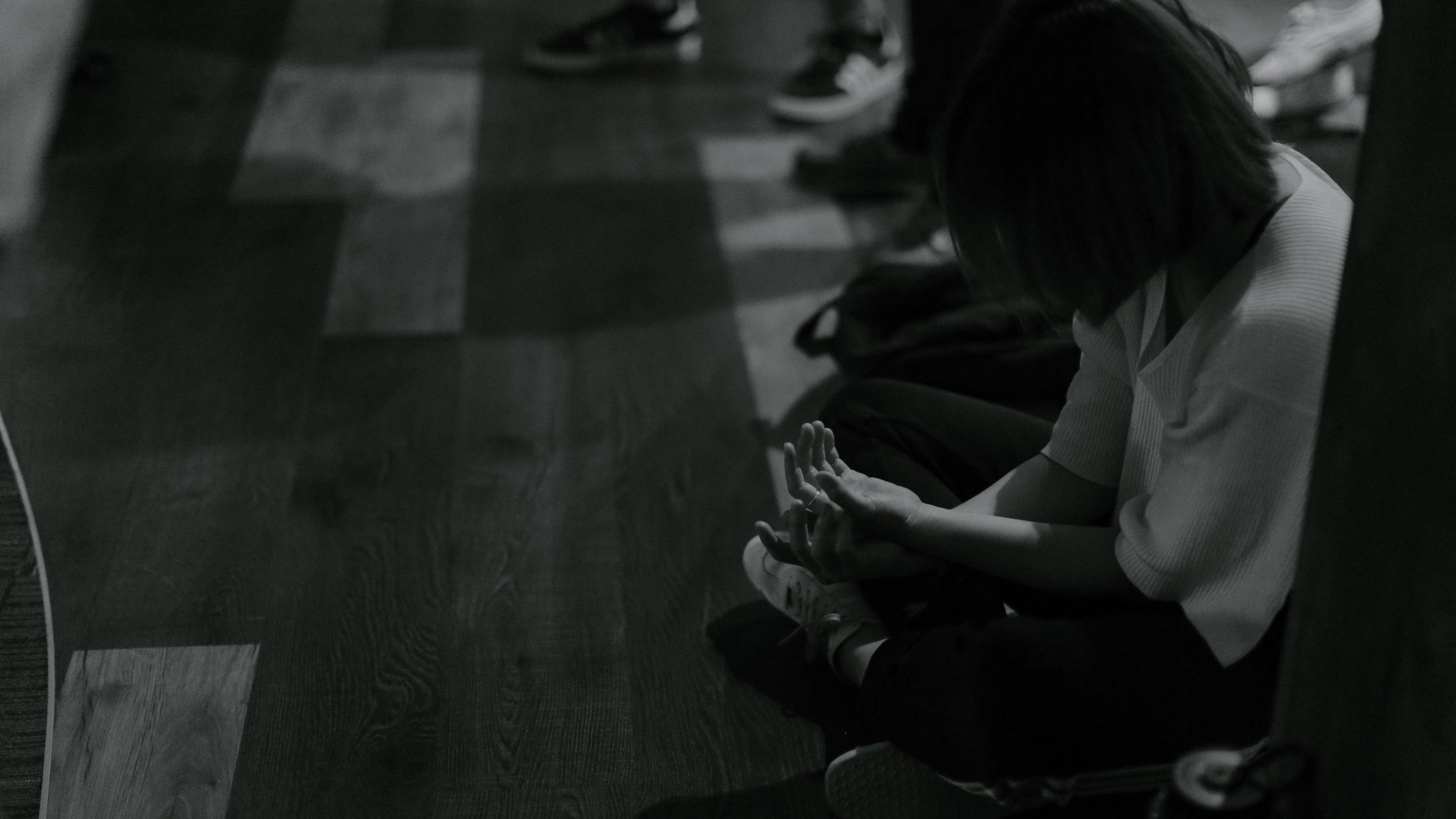Music in Prayer & Intercession
Could you share a bit on how music is used in the context of prayer?
It’s not a new concept. If you think about it, in the Word of God, you have an entire book of prayer that’s meant to be sung. So if God instituted it, it’s not a question of: “Why should we do it?”, but: “Who told you to stop?”
The Tabernacle of David is a classic example - he set up a tent for singers and musicians. 288 singers, 4,000 musicians, 4,000 gatekeepers - that’s 8,288 full-time staff that he financially released to make this their occupation; to sing their prayers to the Lord, and keep watch at the tabernacle.
The book of Psalms contains 150 chapters of prayer that weren’t meant to be prayed, but sung. The problem is we often read the psalms as if it was Bible study, asking, “What does the word ‘earnestly’ mean?” and so on.
We have to understand that these psalms were written not in the language of information (stating facts) or influence (to try and persuade), but intimacy - the type of language that’s spoken between husband and wife, close ones, etc. The problem is that sometimes we speak to God with the wrong language. When we read the psalms, it’s not supposed to be studied like a textbook, or read like it’s information; it’s supposed to give us language to sing to God.
Right smack in the middle of the Bible, God has already set for us an example. That, to me, is a key backdrop to why prayer, worship, and music go together.
In the New Testament, Paul also wrote a lot about it (Col 3:16-17, Eph 5:19, Rom 15:9-12).
Revelation 5:8 says,
“Now when He had taken the scroll, the four living creatures and the twenty-four elders fell down before the Lamb, each having a harp, and golden bowls full of incense, which are the prayers of the saints.”
This is where the phrase ‘Harp & Bowl’ came from. The harps represent music, singing, and songs, while the bowls represent the prayers of the saints. So imagine a picture of notes coming out from the harp and incense intermingling before the throne of God. It’s not two separate things; it’s two things coming together.
If we had all the time and money in the world, wouldn’t we want to surround ourselves with what delights us most? God chose to surround Himself with intermingling worship and prayer, because it’s what brings Him most delight.
Some people may have the notion that singing prayers is ‘not their thing’. Would you say people are missing out if they don’t engage in prayer with music/worship?
Misty Edwards has a line from a song that says,
“How far will You let me go? How abandoned will You let me be?”
If God is an endless ocean, and if you can spend the rest of your life to search Him out and never come to the end of Him, then there’s more of Him to be discovered; more ways to experience Him and understand who He is. This is one of the key ways.
If there’s so much to God, it’s not a question of, “Why should I?”. The question should be, “Why not?”
God is a musical God. Creation sings. Prayer is basically conversations with Him. If music is a language that’s so close to God’s heart, then I think they go very well together!
For me, one of the foundations for why we combine music and prayer is Isaiah 56:7, which talks about the house of prayer. Jesus quotes this is in Matthew 21. The chapter talks about how the sons of the foreigners, the gentile nations, will be brought to the house of God. It goes on to say,
“Even them I will bring to My holy mountain,
And make them joyful in My house of prayer…”
There’s a promise of enjoyable prayer there. I think by and large when we think about prayer meetings in the church today, ‘enjoyable’ is not one of the top three words you would use to describe it. And yet, we’re confronted with a promise in the Bible about God giving us joy in the place of prayer; that enjoyable prayer is supposed to happen.
Think about watching a movie with the background music muted - you can have all the words, the romantic scenes, separation scenes - it’s factual but you miss the element of enjoyment. I feel like prayer can be like that. Sometimes we bring prayers before the Lord and, yes, we are communicating with God, but when you add the music, you add an element of enjoyment. You wouldn’t enjoy The Lord of the Rings very much if you experienced the beauty of Middle Earth without Howard Shore’s soundtrack behind it.
How would you advise those who aren’t musically inclined to engage in prayer with music? Any practical handles?
If you’re not a musician, but you want to get involved in this, one way is to find community to do it with. Someone once said that loving God is not the highest calling; it’s loving God together.
And I think it’s a great opportunity for us to lend our strengths in the Body of Christ. For example, in your group of friends, you might have one guy who’s a great musician. Get together with them and worship the Lord together.
On a personal devotional level, turn on worship music and sing along to it. If you can play two chords (or even one), you can already sing your prayers to the Lord.
I would recommend that you go deep into Paul’s epistles, because those are prayers that Paul prayed, called Apostolic Prayers (prayers written by the apostles). They are actual prayers for the church birthed from the heart of God that give you language to pray. If you want to learn how to sing, these provide you with material to sing. There are actual prayers in the Bible that God desires and wants to answer (Eph 1:17-19, Eph 3:16-19, 1 Cor 1:5-8, Phil 1:9-11, Col 1:9-11). All these are great passages to begin with. Isolate certain phrases and sing and speak them back to the Lord!
More Articles
- Worship 74
- Blog 56
- Community 43
- Creative 38
- Behind the Scenes 32
- Destiny 23
- Devotional 17
- Identity 16
- Discipleship 15
- Leadership 14
- Revival 12
- Ministry 10
- Songwriting 10
- School 9
- Technical 9
- Generosity 5
- Pastoral 4
- Vocals 4
- Drums 3
- Missions 2
- Social Media 2
- Sound 2
- Bass 1
- Contributors 1
- Guitar 1
- Israel 1
- Keyboards 1



